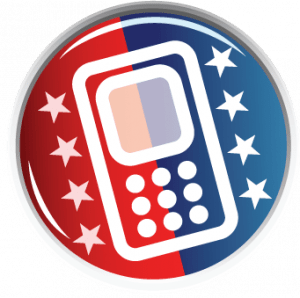Despite continued stories about President Barack Obama’s tech-savvy young army, a new poll explodes the myth of Republicans as the luddite party by revealing that both liberals and conservatives are equally likely to use what is widely considered the frontier of the Internet: mobile. “Republicans and Democrats engage at comparable levels in all of the mobile-politics activities,” reports the latest Pew Study, which found that 45 percent of registered voters use social networks for mobile politics, 27 percent keep up with political news, and 35 percent are fact-checking candidates on-the-go.
Since Obama’s revolutionary use of social media in 2008, democrats have enjoyed the myth as being the tech-savvy party. As I’ve documented (extensively), Obama’s crushing defeat of Republicans in 2008 inspired the Republican party to make digital a priority, hiring or promoting their geekiest staffers. As soon as 2010, Republican members of Congress were already trouncing Democrats on Twitter (as measured by follower numbers and engagement).
While in 2008, more Democrats were using social media than Republicans (29 percent vs. 44 percent), that gap had disappeared by 2010. “Two years ago, it was young Obama supporters using Facebook to engage with the campaign. Now, their parents are using Facebook to engage with the tea party,” said Aaron Smith, a senior researcher at the Pew Internet & American Life Project. Indeed, both Republicans and Democrats have seen equal cell phone use since 2012.
Today, both parties are equally addicted to their cell phones and enjoy a solid volley for the king of digital. Gov. Mitt Romney’s digital campaign is getting an astounding 10 percent click-through rate on mobile ads, according to digital lead, Zac Moffatt. Obama, for his part, virtually monopolized Twitter conversation during the convention, and undercut Romney during his convention with a clever string of announcements, including a Reddit “Ask-Me-Anything” and a viral picture mocking Clint Eastwood’s notorious conversation with an empty chair.
This has important implications. For instance, when America eventually gets e-voting (like Estonia enjoys), it means that it is unlikely to dramatically affect either party. And if you think that it’s healthy for a democracy to have a bipartisan voice, then this latest report is good news.
